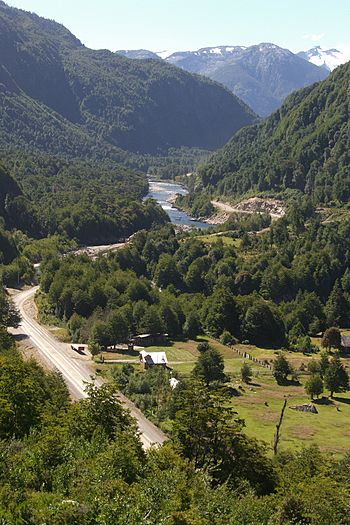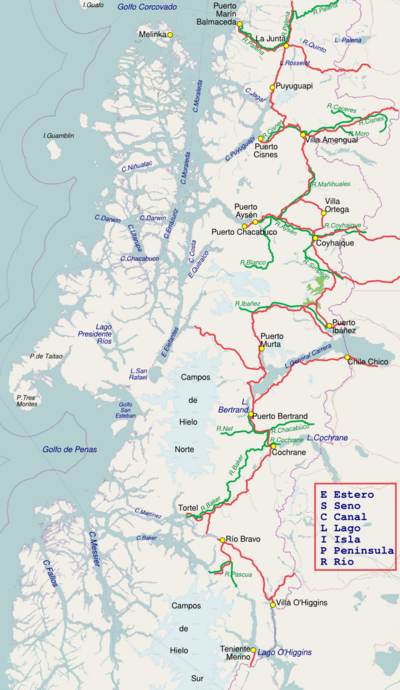Cisnes River facts for kids
The Cisnes River is a beautiful waterway in Chilean Patagonia. Its name, "Cisnes," means "swans" in Spanish. This river flows through the Aysén del General Carlos Ibáñez del Campo Region of Chile.
The Cisnes River starts high in the mountains near the border with Argentina. It then travels from east to west, eventually reaching the Pacific Ocean. It empties into the ocean near the town of Puerto Cisnes, specifically into the Puyuhuapi Channel.
Quick facts for kids Cisnes River (Río Cisnes) |
|
|---|---|

From a lookout point at the Carretera Austral, which is also visible in the photo
|
|
|
Cisnes River in the Aysén Region
|
|
| Country | Chile |
| Physical characteristics | |
| River mouth | Puyuhuapi Channel, Pacific Ocean |
| Length | 160 km (99 mi) |
| Basin features | |
| Basin size | 5,464 km2 (2,110 sq mi) |
About the Cisnes River
The Cisnes River is about 160 kilometers (100 miles) long. It's known for its amazing turquoise-blue color. This special color comes from tiny bits of rock and dirt left behind by glaciers. These "glacial sediments" are carried by the river, making it look bright and clear.
River Flow and Tributaries
The river's water comes from melting snow and ice in the mountains. As it flows, other smaller rivers join it. These smaller rivers are called tributaries. Some important tributaries of the Cisnes River include the Moro River and the Pinchado River.
The Cisnes River plays an important role in the local environment. It provides water for many plants and animals in the region.
See also
 In Spanish: Río Cisnes para niños
In Spanish: Río Cisnes para niños
 | Misty Copeland |
 | Raven Wilkinson |
 | Debra Austin |
 | Aesha Ash |


